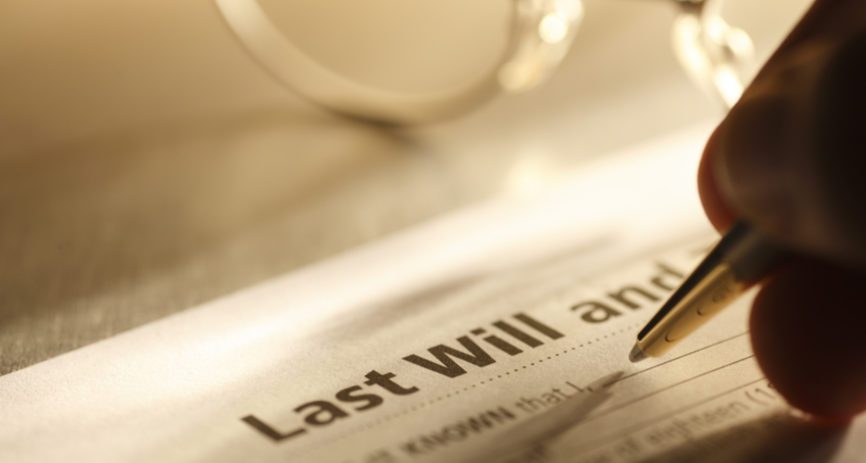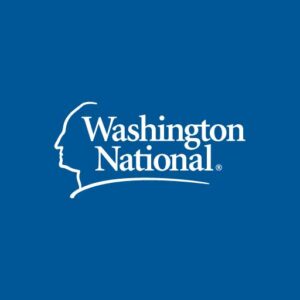
This is an advertisement and solicitation.
How to organize your important end-of-life documents
The end of your life is the last thing you think about when you’re spending time with family and friends, but it shouldn’t be. Preparing for your passing isn’t something you do for yourself. It’s something you do for your family.
There are many questions when a loved one dies—so why not answer as many as possible now, while you’re here? When you have your ducks in a row NOW it takes care of your family THEN, making their time of loss and grieving as smooth as possible.
One important way to give your family the answers they need to carry out your final arrangements is to have all of your important documents organized and in known locations. This way, your loved ones won’t be scrambling around searching for your documents during what’s already a confusing and emotional time.
To help you get organized, we’re going to share important information on the documents you need to locate and organize, plus safe ways to store them. Also, check out our handy important end-of-life document checklist, which you can download, fill out and share with your loved ones.
What documents are important for final affairs?
As your family, executor and estate attorney settle your final affairs and complete the probate and trust settlement process, there are many essential documents they will need throughout the process. Here is a list of many of the important documents they will need:
- Original life insurance/annuity policy—For filing claims and finding out payment information
- Certified death certificates—For processing claims, entering safe deposit box, filing tax returns, Social Security and/or veteran benefits
- Will, summary of assets (if no will exists)—For providing to attorney and/or surrogate court
- Marriage certificate(s)/domestic partnership agreement—For filing to receive benefits from Social Security, VA and/or state/employer
- Dated obituary notice and newspaper articles—For processing some claims
- Business agreements (i.e., buy-sell agreement, partnership documents)—For providing to attorney
- Certificate of appointment (for estate executor or other fiduciary responsibility)—For processing claims and/or disposing of assets
- Deceased’s employee benefit statements—For determining benefits available to survivors
- Retirement plans, brokerage accounts, mutual funds, stocks, bonds, real estate deeds, joint billing statements, automobile registration, other insurance contracts (e.g., fire, homeowners, auto)—For changing beneficiary and names on joint accounts
- Social Security card—For applying for Social Security benefits
- Current bills—For preparing household budget and discussing with attorney
- Medicare card—For reporting the death of a Medicare beneficiary
- Driver’s license—For settling vehicle and driver’s license records
How to store and keep important documents safe
If something happened to you today, would your family members know where to look to find all of the important documents listed above? Don’t leave your loved ones searching through stacks of paperwork to find the necessary documents.
When storing important documents, it’s important to keep your information accessible, while also keeping it safe from theft, fire or other emergencies. Here are some tips to help guide you as you organize your important documents:
- Your wallet is an obvious and good spot to keep your driver’s license and Medicare card. However, many people mistakenly keep their Social Security card in their wallet, too. It is not advisable to carry your Social Security card around with you in your wallet, because it’s an easy way to have it, and your identity, stolen.
- Perhaps the safest way to keep documents secure is a safe deposit box. A safe deposit box is a metal box that you can rent from a bank or credit union for anywhere from $40 to a few hundred dollars a year, depending on size. Safe deposit boxes are typically located in impenetrable and highly secured vaults, and are ideal for storing original documents, such as your will or Social Security card. If you choose to store your important documents in a safe deposit box, you’ll need to ensure your loved ones have access to it after you pass away. The easiest way to do this is to provide access to a designated individual through your rental contract with the safe deposit box holder. Talk to your safe deposit box holder for more details.
- A home safe is an option for keeping your documents safe at home. Ensure that your home safe is fireproof, waterproof, and has a secure locking mechanism. You should also consider anchoring your safe so burglars can’t carry it away. The best place to bolt down a safe is a concrete floor in a discreet spot. Slide each of your documents into its own plastic sheet protector for added protection.
- A desk or file cabinet is another option for organizing your important documents. Though perhaps not as secure as a safe deposit box or anchored home safe, a locked desk drawer or locked file cabinet can provide a sufficient spot to keep your important documents organized.
Important end-of-life documents checklist
Now that you have all of your important documents gathered and organized in their designated spots, it’s time to let your loved ones know where to find your documents in the event you pass away.
We created this checklist to help you do just that. Simply fill out the locations of your important documents under the document location column. You’ll notice some of these are already filled in. This is because these documents can only be obtained after death. We included them to help guide your loved ones as they get everything prepared and organized. We also included a purpose column to assist your loved ones as they carry out your final affairs.
Download the important end-of-life documents checklist now
Preparing now takes care of your family later
As you organize your important documents, it may be a good time to also evaluate your life insurance needs. Washington National is ready to help. One of our agents would be happy to review your coverage and help you find a product to meet your needs. Contact us here to get started.
Washington National is a private company that is not Medicare, Medicaid or MaineCare and is not a governmental agency
